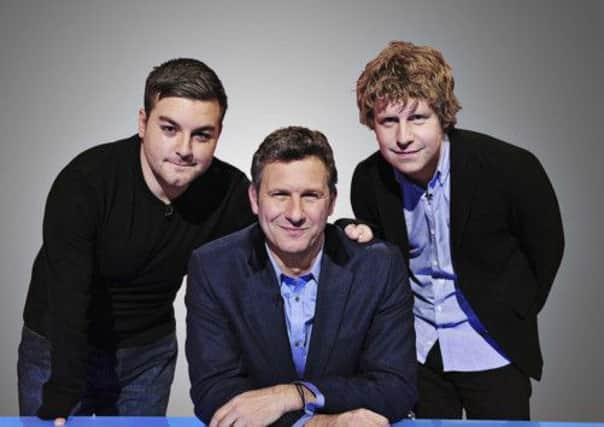Why the Paralympic feelgood factor is still shining a light


A YEAR ago David Weir took gold in the men’s 1500m T54 following another scintillating performance, adding to the 5000m gold he’d already won.
By the time the Paralympics drew to a close a few days later he’d added two more gilded medals to his collection and written himself into the annals of British sporting history. He wasn’t the only one. The likes of Yorkshire’s Hannah Cockroft, sprinter Jonnie Peacock and teenage swimming sensation Ellie Simmonds not only struck gold they captured people’s imagination in a way that our Paralympians, perhaps with the exception of Tanni Grey-Thompson, hadn’t done before.
Advertisement
Hide AdAdvertisement
Hide AdFor the likes of Cockroft, a double gold medallist at the games, the last 12 months have been life-changing. “I’ve done some amazing things like BBC Sports Personality of the Year and The Pride of Britain Awards. I did a photoshoot for Marie Claire and I went on Mastermind,” she says. “Before London, if you asked people about the Paralympics they might have heard of Tanni Grey-Thompson and perhaps Ade Adepitan but that was about it. Now they know people like me, Jonnie Peacock and David Weir and we’re recognised for being elite athletes.”
At its closing ceremony last September, the International Paralympic Committee president Sir Philip Craven said the Games had “changed us forever” and this weekend, to mark the one year anniversary, a series of events are being held at The Queen Elizabeth Olympic Park to tie in with National Paralympic Day.
But while last year’s event was a huge success and its stars have become household names, its legacy “hangs in the balance” charities warned recently. Although there have been small increases in sports participation, according to a poll by the disability charity Scope, 81 per cent of disabled people questioned said attitudes haven’t improved, with 22 per cent even saying that things had actually got worse.
Its chairwoman Alice Maynard said “the jury is very much out” on whether disabled people’s lives have improved since the Games.
But Halifax-born Cockroft disagrees.
Advertisement
Hide AdAdvertisement
Hide Ad“The disabled people I speak to say it’s made a huge difference,” she says. “It’s not just in sport but in everyday life, disabled people seem more confident and independent. They watched people like me and thought ‘if she can do it, then I can do it.’
“The uptake in wheelchair racing has gone through the roof and you see more disabled people out on the streets. They go out on their own rather than with their carers and they’ve got more self-belief.”
Last year’s games took place against a backdrop of cuts to disability benefits and with these due to kick in some campaigners believe the idea of a legacy is in danger of becoming meaningless if, in a material sense, life for disabled people is harder.
Cockroft would like to see Britain take its lead from countries like Finland, which she visited recently. “It’s the perfect place for disabled people, everywhere you go they have sloped curves onto the paths and there’s always a ramp next to any stairs. If a country like this can manage then why can’t Britain do that?”
Advertisement
Hide AdAdvertisement
Hide AdDespite this, she still believes the Paralympics have made a positive difference. “After the games in Beijing people talked about us for two weeks and then we were forgotten for four years. But a year down the line people are still excited about what happened and they still want to see us race which never happened before, that’s a massive step forward.”
Alex Brooker, co-host of the popular Channel 4 show The Last Leg, believes the games have helped change perceptions about disability. “The TV coverage was brilliant and you couldn’t help but be inspired watching it, there was nothing like that when I was growing up.”
However, Brooker, who born with a twisted right foot which needed to be amputated, believes there is still more work to be done.
“It’s going to take more than one Paralympics and a few episodes of The Last Leg to change things, it will take longer than one year and the government needs to take a lead.”
Advertisement
Hide AdAdvertisement
Hide AdEven so, he is convinced London 2012 will have a lasting impact. “Having a disability isn’t a taboo any more. There are more disabled sports clubs and more young kids getting involved – and that’s an undoubted legacy.”
• For more information on National Paralympic day visit www.queenelizabeth olympicpark.co.uk